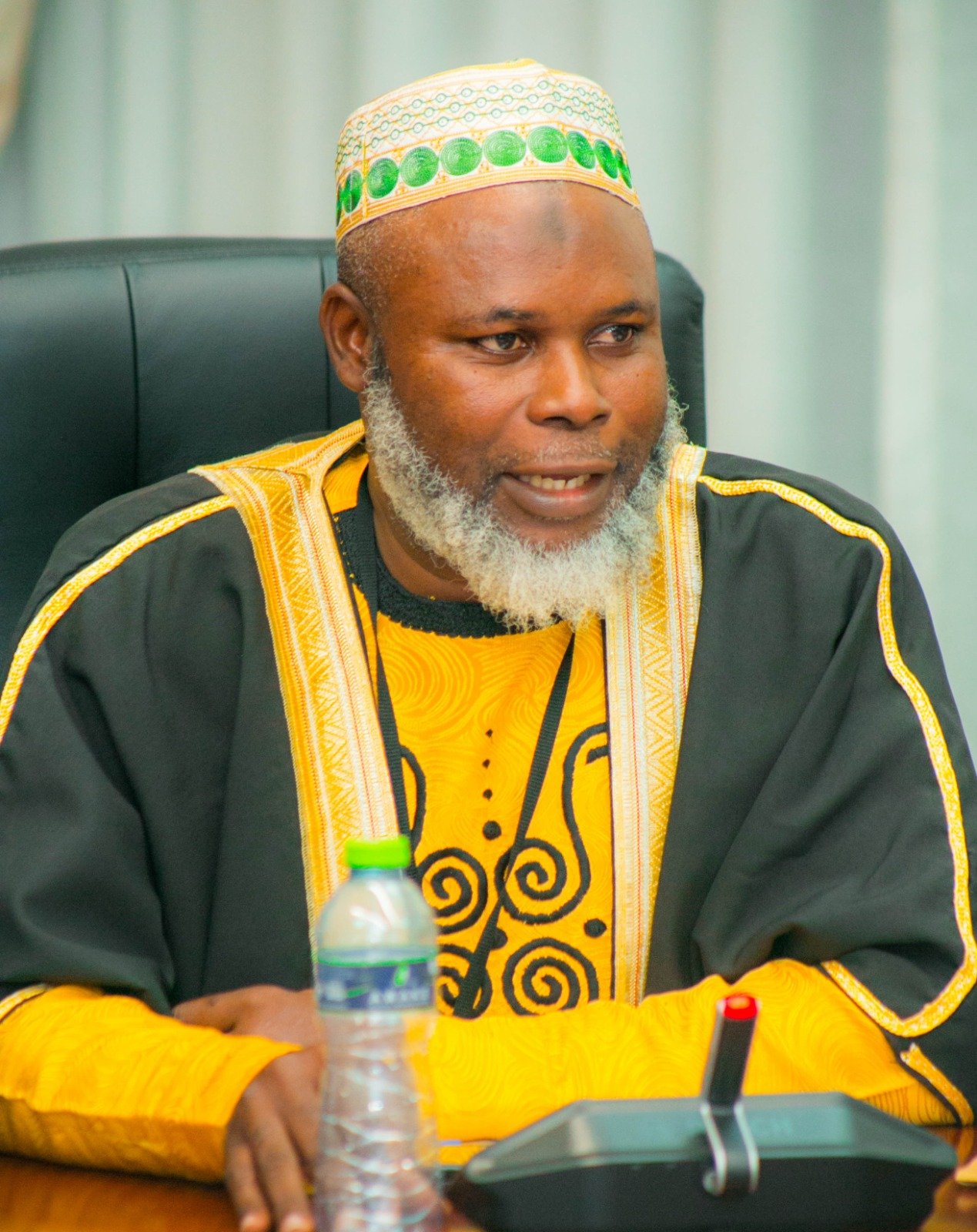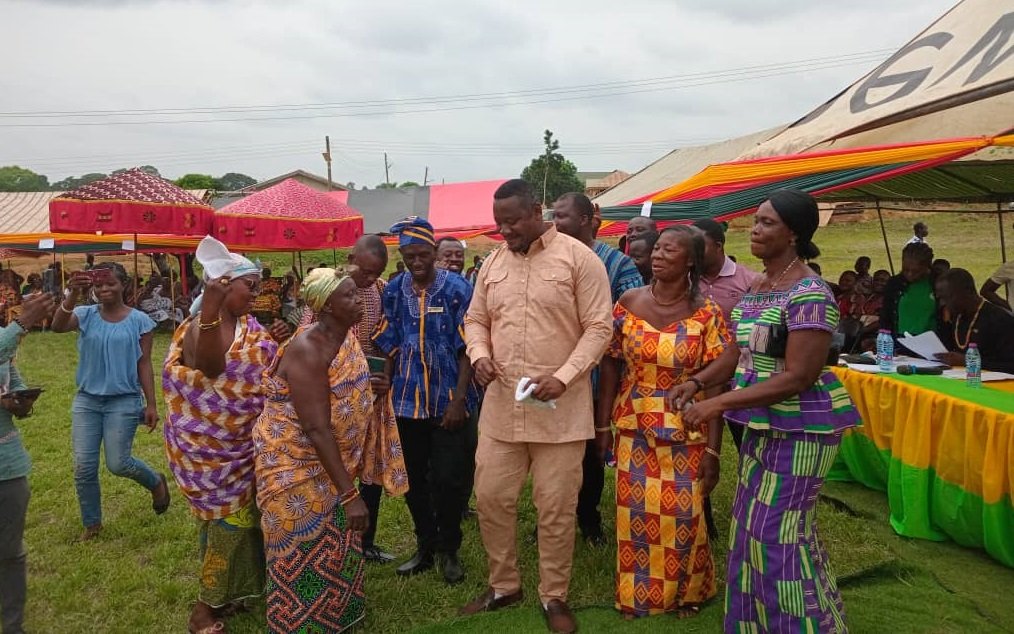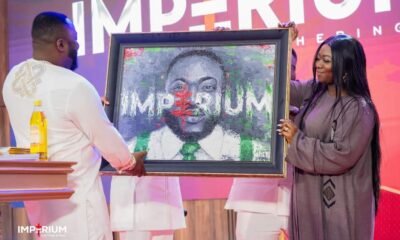Fruitful Living
Dr Daniel Olukoya set for ‘Ghana Great Deliverance, Mega Healing Crusade
The General Overseer of the Mountain of Fire and Miracles Ministries (MFM Worldwide), Dr Daniel Olukoya will on November 24-26 hold a deliverance and healing crusade in Ghana.
Dubbed, the ‘Ghana Great Deliverance and Mega Healing Crusade,’ the event would be held at the Independence Square.
In a statement released by the church and signed by its administrator, Pastor Orlando Dablu, it described the Nigerian pastor, Dr Olukoya as ‘The Elijah of our time’ and the vessel God had chosen at this crucial time to minister deliverance and healing on the land of Ghana from the current upsurge of spiritual battles which has had a replica effect on the entire citizenry and the economy at large.
The Crusade, it said, would bring together millions of people including church leaders, ministers of the gospel, church workers and all who were seeking to have an extraordinary encounter with God from across the world, particularly those in the West African sub-region.
“There will be inter- denominational Minister’s Conference at the Accra International Conference Centre titled ‘Ministers Deliverance/Open Heaven International Conference with Dr Olukoya. This inter-denominational conference will bring together, Bishops, Apostles, Reverend Ministers, Prophets, Pastors and all Ministers of the gospel of Christ,” the statement read.
The MFM, established since 1989 is a full gospel ministry devoted to the revival of apostolic signs, Holy Ghost fireworks and the unlimited demonstration of the power of God.
MFM has over 40 ministries under its umbrella, spread across seven continents of the world.
“The Ministry also prioritises on building up prayer eagles who are heavenly- bound and aggressive Christians,” the statement said.
Dr Olukoya is the author of popular best-selling deliverance prayer books titled Prayer Rain, Prayer Passport and many other deliverance books used all over the world with outstanding recorded testimonies.
By The Spectator Reporter
Fruitful Living
Institution of Marriage in Islam (Pt.3)

Regarding sexual intimacy, it is also prohibited for a wife to demand money or gifts before allowing her husband to engage in sexual relations. Islam views this as a form of exploitation and sin. A marital relationship must be based on mutual love, respect, and affection rather than material gain.
Prohibition of sexual intercourse during menstruation
Islam has clear guidelines regarding sexual relations during certain times, particularly when a woman is menstruating. The Qur’an prohibits sexual intercourse during menstruation, stating:
“And they ask you about menstruation. Say: ‘It is harm, so keep away from women during menstruation. And do not approach them until they are pure. And when they have purified themselves, then come to them from where Allah has ordained for you. Indeed, Allah loves those who are constantly repentant and loves those who purify themselves’” (Qur’an 2:222).
This verse emphasises the importance of refraining from sexual activity during menstruation due to physical and spiritual reasons. However, all other forms of affection and companionship are allowed, and husbands should continue to care for their wives during this time with love and respect.
Islamic law encourages cleanliness and personal hygiene, especially in matters related to physical intimacy. After the menstruation period ends, it is recommended that the wife perform ghusl (ritual purification) before resuming sexual relations with her husband.
Rights of Children on Parents
Islam emphasises the rights of children on their parents, as marriage is the foundation of family life. Parents are obligated to provide their children with proper care, education, and moral guidance. The Qur’an states: “O you who have believed, protect yourselves and your families from a Fire whose fuel is people and stones…” (Qur’an 66:6).
This highlights the parents’ responsibility to raise their children with a strong sense of morality and faith. Children have the right to a good name, religious upbringing, and education, and they must be treated with fairness and love.
In Ghana’s law, there is Children’s Right Act, Act 560 (1989) which states among other things,
• Section 4, Right to Name, Nationality and secure a Birth Certificate for the child
• Section 6(3) (a&b), protection from neglect, provide good guidance, care etc
• Section 8(1&2), Right to education and wellbeing (medical care, diet, clothing, shelter).
How Do Married Couples Resolve Their Differences in Islam?
Islam provides clear guidelines for resolving marital conflicts in a just and compassionate manner.
The Qur’an instructs that in the event of marital discord, both parties should seek reconciliation:
“If you fear dissension between the two, send an arbitrator from his people and an arbitrator from her people. If they both desire reconciliation, Allah will cause it between them” (Qur’an 4:35).
The goal is always to preserve the marriage and restore harmony. If reconciliation is not possible, Islam permits divorce as a last resort, but it is considered the most disliked permissible act in the eyes of Allah (SWT).
Rewards of Marriage in Islam
Marriage in Islam is not only a social institution but also an act of worship that brings great rewards. The Prophet Muhammad (PBUH) said: “When a man marries, he has fulfilled half of his religion, so let him fear Allah regarding the remaining half” (Bayhaqi, Shu’ab al-Iman).
Married couples are rewarded for fulfilling their marital responsibilities, showing kindness to each other, and raising righteous children who contribute positively to society.
Scholarly Thoughts About Marriage in Islam
Islamic scholars, such as Imam Al-Ghazali, have discussed marriage as a means of controlling desires and fulfilling one’s spiritual obligations. Modern scholars like Sheikh Yusuf Qaradawi also stress the importance of mutual respect and understanding in marriage, ensuring that both partners can grow spiritually and emotionally within the marriage.
Conclusion
In conclusion, marriage in Islam is a divinely ordained relationship based on mutual love, respect, and responsibility. By following the guidance of the Qur’an and Sunnah, and observing the legal frameworks in place, such as Ghana’s Mohammedan Ordinance, we can establish strong and harmonious marriages that contribute to the moral and spiritual development of society. May Allah (SWT) guide us to fulfill our marital responsibilities with sincerity and love.
The Writer is Kpone Katamanso Municipal Chief Imam, Democracy and Governance Law Student, UCC, Member of Ghana National Association of Certified Counsellors Certified by Ghana Psychology Council
References:
1.Qur’an, Surah Ar-Rum (30:21)
2.Qur’an, Surah An-Nisa (4:34, 4:4, 4:19, 4:35)
3.Qur’an, Surah Al-Baqarah (2:187, 2:221, 2:222, 2:223)
4.Qur’an, Surah At-Tahrim (66:6)
5.Ibn Majah, Hadith 1845, 1905
6.Tirmidhi, Hadith 1162, 1084
7.Bukhari, Hadith 5090
8.Children’s Right Act, Act 560 (1989)
9.Bayhaqi, Shu’ab al-Iman
10.Al-Ghazali, Ihya Ulum al-Din
11.Qaradawi, The Lawful and Prohibited in Islam
Fruitful Living
Adansi North DCE marks birthday on Farmers’ Day

It was a momentous day for the Adansi North District Chief Executive, Eric Kwaku Kusi, last Friday November 8, as the 40th National Farmers Day district level celebration held here at Adansi Adokwai coincidentally fell on his birthday.
On a low-key, Mr Kusi momentarily took to the floor, to exhibit his dancing skills responding to cheers of “Happy Birthday to you” from the audience, to which he also responded with a gesture of thanks and praises to God, as he stepped out to address the gathering.
He was joined on the dancing floor by the assembly members singing praises to God for the life of their indefatigable DCE.
In his address, Mr Kusi commended farmers in the Adansi North and the country as a whole “who tirelessly cultivate the land to feed all of us in our communities.”
He said the government realising the important role agriculture played in the economy and the challenges facing farmers due to the effects of climate change was rolling out initiatives and policies to support climate-resilient agriculture, including agriculture insurance programme for farmers.
In all 16 farmers were awarded various prizes for their contribution to food sufficiency in the country.
Francis Appiah, 41, who hails from Adokwai was adjudged the District Best Farmer for 2024, and took home a tricycle and other assorted items. The first runner-up prize went to Sakyi Kwabena also from Adokwai and the second runner-up went to Kwame Gyamera from Dompoase.
From Alhaji Salifu Abdul-Rahaman, Adansi Adokwai







